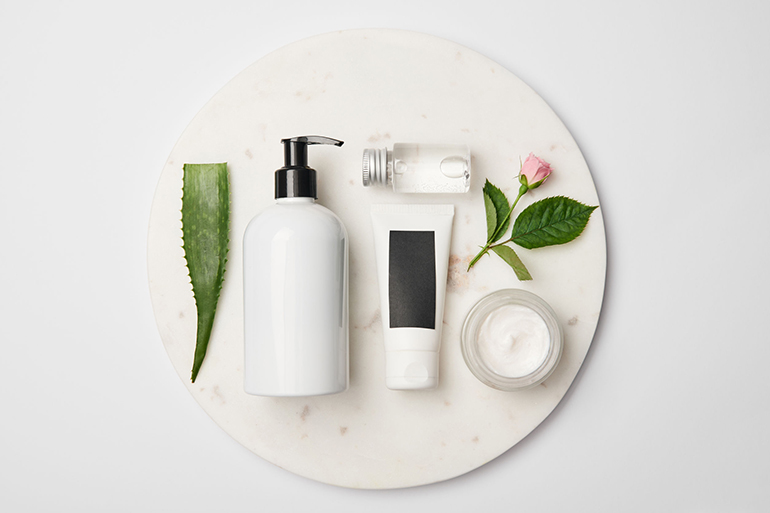Sunburns and Snow Burns Happen…Here’s What to Do Afterward

It happens to the best of us. You spend the day braving the winter elements to shop, exercise and get some much-needed vitamin D, then you come home and realize you have a sunburn—in this case, a snow burn, since the damage is the result of the sun’s rays reflecting off the snow and onto your exposed skin. I may be married to a dermatologist and know how to protect myself, but even I miss a spot or forget to reapply sunscreen sometimes. As a mom, I have become so focused on protecting my kids that I don’t always do a good enough job for myself. Accidents happen, but if you treat your sunburn right away, you can help your skin recover without too much damage.
Here are the DermWife’s post–sun emergency repair tips.
1. Stick to a gentle cleanser. After a winter day spent outside, you may be covered in sunscreen and snow. You may be tempted to scrub the skin, but that’s a big no-no if you have a sunburn. Especially if the skin is burned, it is extremely sensitive, so stick to gentle cleansers rather than scrubs to remove buildup from the day without damaging your skin’s moisture barrier.
2. Hydration, hydration, hydration. Sunburns damage the outer skin layer, so immediate hydration is key. My husband, like so many other dermatologists, recommends aloe-based products to help skin recover from the sun. Whether it’s from a product you bought at the store or pulp from a fresh leaf, aloe is ultra moisturizing and can actually help calm inflammation in the skin. If you don’t have aloe at home, then Dr. Z recommends sticking to a light lotion or gel moisturizer. They moisturize without forming a heavy seal that blocks heat from being released from the skin.
3. Calm the inflammation. UV light from the sun weakens our collagen, leading to wrinkles and harm to our skin cells, causing skin cancers. All of this, my husband explains, is the result of free radicals. Free radicals are like tiny bombs that explode in the skin, damaging everything around them. Enter antioxidants, which absorb the energy from those free radicals and help defuse the bomb. I regularly use a vitamin C-containing serum every morning, but make sure to put on an extra dose after a sunburn to help counteract the effects of the sun. Vitamin C also blocks production of extra pigment in the skin and can ward off pesky sunspots.
RELATED: DermWife’s Tips for Transitioning Your Skincare for Cold Weather
4. Inside-out and outside-in. We do everything we can to repair the skin on the outside, but we actually can do more from the inside as well. Damaged skin can mean dehydration, so make sure to drink lots of water. Also, Dr. Z recommends an aspirin or other NSAID to help calm inflammation from the inside out. Of course, only do this if your doctor says they are safe for your health.
5. DIY options. If you find yourself at home completely unprepared with no moisturizer in the house, don’t worry. Just by opening your refrigerator, you still can treat your skin. One DIY recipe I have tried is a cool milk compress. Simply pour milk in a bowl with ice cubes and soak a washcloth in it. Then put the ice cubes inside the washcloth and apply the compress to the skin. Milk coats and protects the skin similar to the way that your moisturizer will. As an alternative to milk, you can even try egg whites or yogurt.
6. When to seek professional help. For most mild sunburns, these at-home tips can help. But Dr. Z advises to visit your doctor if you have any blisters or raw or open skin. If you have a fever or feel unwell, you should also get professional care.
Sunburns happen, but being prepared afterward can help minimize how much damage develops in your skin. Stay sun-safe this winter, and while you hopefully won’t need them too much, these post-sun repair tips are dermatologist recommended and DermWife® approved.
Cori Zeichner, aka The DermWife®, started sharing her skincare secrets on her popular blog, thedermwife.com, after friends began asking about her beauty routine. Married to a prominent New York City dermatologist, Zeichner has tried it all and is willing to talk about it.
Before making any medical decisions, consult your physician.



